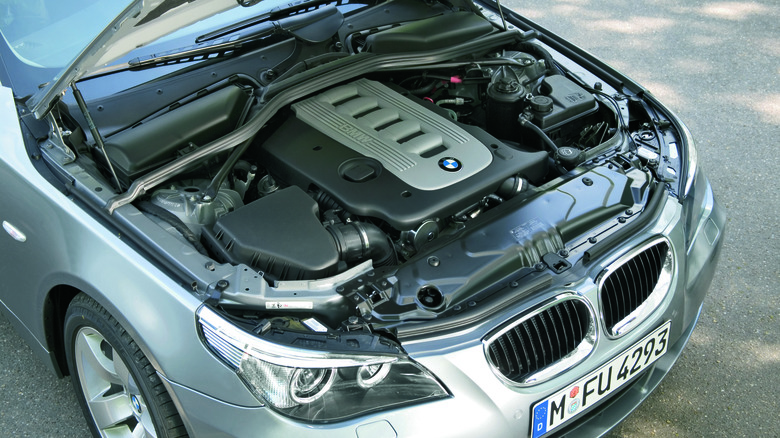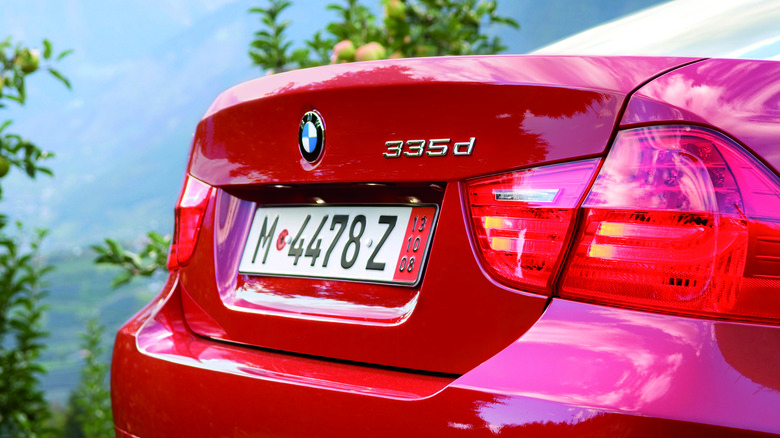German Diesel: Why The BMW M57 Is Held In Such High Regard
Even if diesel engine popularity is waning in Europe, oil burners still have a very different image on the Old Continent compared to North America. They are much more commonplace in passenger cars and are a far more frequent choice for a tuning project, and it's reliable diesel engines like the BMW M57 that people choose to make lots of power reliably.
The M57 is an inline-six-cylinder turbocharged diesel engine that was in production between 1998 and 2010. Available in three displacement versions (2,497 cc, 2,926 cc, and 2,993 cc), it powered a wide range of different BMW models, from the 3 Series to the 7 Series, as well as the X3, X5, and X6. In the U.S., it debuted in the 2009 335d and the X5 35d with 265 horsepower, so that's where you'll see all units sourced if you aren't importing one of these engines from outside the country.
Outputs range from 148 horsepower and 221 pound-feet (300 Nm) of torque in early 2.5-liter engines to 282 horsepower and 428 pound-feet (580 Nm) of torque in a 3.0-liter twin-turbo like the one found in 35d-badged BMWs built after 2007. But any M57 can make noticeably more power with a simple remap, and this is why it is one of the most commonly modified diesels in Europe.
If you don't want to extract big power and just want a reliable six-cylinder diesel daily, then the M57 is also a great pick, as it's known to last for hundreds of thousands of miles with proper maintenance. BMW Blog found one that drove 495,615 miles with its original engine.
How much power can an M57 make?
The M57 is such a good base to extract a lot more power than stock that it has also found fans in the U.S., where tuners like to push engines to the extreme. It is preferred thanks to its tough cast iron block, high-quality construction, and a history of reliability. Subsequent generations of the straight-six diesel moved to an aluminum alloy block, which is why the older unit is often chosen for big-power applications.
Tuners can come close to doubling an M57's output by giving it new (and bigger turbochargers), a larger intercooler, a higher-flow fuel system with uprated injector nozzles, and a software remap. If the car that receives this modified engine with over 500 horsepower has a manual gearbox, it will probably need an upgraded clutch to handle all the extra oomph and not shatter as it struggles to send the extra torque to the wheels.
The quickest-accelerating and most powerful diesel BMW ever is a stripped-out E81 1 Series (originally a 118d) sporting a heavily modified M57 engine. It is a drag car project created by a specialist tuner in Romania, and it has 1,020 horsepower and 1,217 pound-feet (1,650 Nm) of torque. That's remarkable for any engine, let alone a 3.0-liter diesel. What makes the feat even more impressive is the fact that around 75% of all its drivetrain components are stock, confirming this engine's reputation for reliability.
The car would have been difficult to control with rear-wheel drive, so it was given all-wheel drive from a different BMW, allowing it to complete the quarter-mile in just 8.31 seconds.

